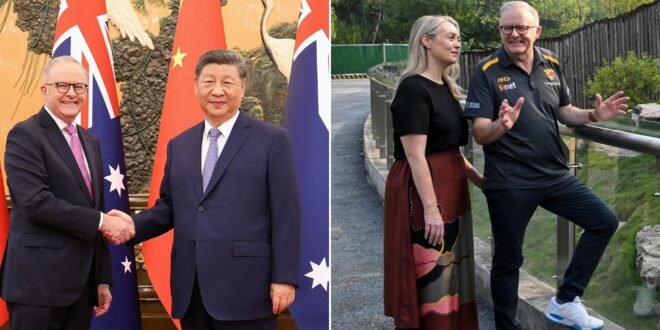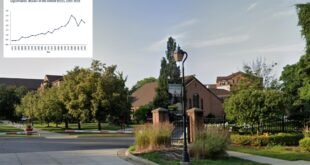A Prime Minister’s Perspective on China’s Transformation
As the prime minister concluded a successful six-day tour of China, he shared an insightful observation with viewers back home. “China isn’t just Beijing or Shanghai, any more than Australia is Sydney or Melbourne,” he said, highlighting the vast diversity of the country. This sentiment was echoed as he departed from Chengdu, a regional city many Australians may not be familiar with.
Chengdu, the capital of Sichuan province and a gateway to China’s west, is home to 21 million people. It serves as a hub for high-tech medical research, finance, fashion, and culture. Since Mr. Albanese’s first visit in the 1990s, the city has undergone significant transformations, driven by Deng Xiaoping’s economic liberalization that unlocked its potential to become a global superpower.
The prime minister noted the nation’s confidence in its future, describing it as a place that sees itself as poised for growth. “I’m an urban policy nerd,” he remarked, emphasizing the innovative architecture he observed during his travels. From his vantage point atop a high-rise hotel in central Chengdu, the skyline stretched endlessly, showcasing China’s remarkable building capabilities.
In less than three decades, China has constructed more kilometers of high-speed rail than the rest of the world combined. This development reflects the country’s approach to growth and community consultation, which differs significantly from what is seen in the low-rise suburbs of cities like Sydney or Melbourne. Flying over major Chinese cities, one can see farmland directly adjacent to grids of high-rise apartment blocks, illustrating the sheer capacity of the Chinese economy.
This economic strength is something that members of Mr. Albanese’s front bench, aligned with the supply-side progressive agenda, would like to replicate to address Australia’s housing and energy challenges. Despite concerns about slowing growth and an aging population, China remains on track to achieve its GDP target of five percent this year. This would add approximately $1.4 trillion to its economy, equivalent to adding half of Australia to the Chinese economy in just one year.
Mr. Albanese’s itinerary included retracing the steps of Gough Whitlam on the Great Wall of China, attending a tennis tournament, and visiting a panda research center in Chengdu. These activities drew criticism from the Opposition, with Coalition frontbencher James Paterson questioning the necessity of such visits given the broader international relationships at stake.
However, the prime minister emphasized the importance of these cultural exchanges, drawing parallels to previous visits by former Labor leaders like Whitlam and Bob Hawke. These visits have historically built respect between Australia and China, leading to better economic and diplomatic outcomes. “Those pictures go to 27 million people, potentially, in Australia. They go to over a billion people in China,” Mr. Albanese explained, highlighting the potential for increased tourism and job creation.
While this trip was shorter on concrete outcomes compared to previous years, the welcome from China has been warmer, and coverage from Chinese state media has been more effusive than since the breakdown in Sino-Australian relations in 2020. Several agreements to boost trade and tourism have been reached, and there has been increased dialogue in areas such as green steel and medical technology.
Despite these improvements, China and Australia still face disagreements on various issues. During meetings with Chinese President Xi Jinping and Premier Li Qiang, Mr. Albanese raised concerns about naval live-fire drills off Australia that forced commercial flights to divert. In turn, Mr. Li expressed dismay over Australia’s restrictions on foreign investment from China, urging the Australian government not to treat Chinese firms unfairly.
“We have different political systems, but it has been constructive and has been an important step in the developing of our relationship,” Mr. Albanese stated, acknowledging the progress made while recognizing the ongoing challenges.
 Info Malang Raya Its All About World News
Info Malang Raya Its All About World News



